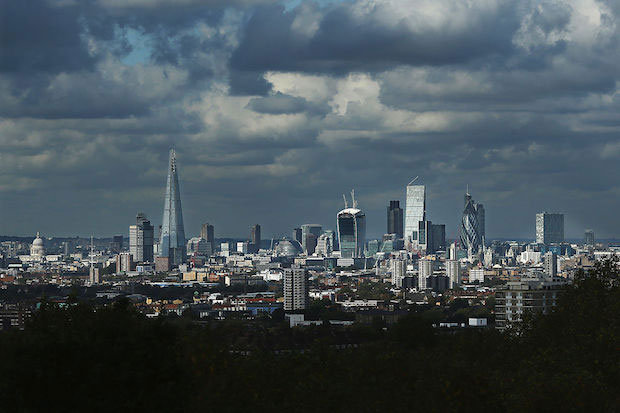At a dinner on Sunday 1st October at the Conservative party conference, sponsored by Barclays, bankers, journalists, MPs and policy experts discussed ‘Brexit and the City: a future that works for everyone’. The event was chaired by Fraser Nelson and the article below is a summary of what was discussed.
Banks were the popular anti-hero of the 2008/09 financial crisis. Now, there is widespread fear for their future after Brexit, as they will be required to relocate some operations in order to continue to qualify for ‘passporting rights’ needed to provide financial services in the single market. On the other hand, Brexit could free us from regulation, which in some ways could boost business for the financial services industry.
Predictions that Frankfurt or Paris could steal London’s crown as the world’s financial capital are exaggerated. No other EU city currently features in the world’s top 10 financial centres. While banks are making preparations to relocate some functions elsewhere in the EU, they are not coalescing around one city, with Paris, Dublin and Amsterdam, as well as Frankfurt, being chosen as destinations.
Meanwhile, says Stephen Barclay, Economic Secretary to the Treasury and a former banker, London already has a lead in many developing areas of financial services – such as green finance and Islamic finance – which have a reach well beyond the shores of Europe. As an indication of the potential to grow business worldwide, only one in 10 Brazilian households, to take one example, currently has household insurance.
According to Sir Gerry Grimstone, Deputy Chairman of Barclays, claims that 100,000 banking jobs in the City would be lost as a result of Brexit were scaremongering, yet the fiscal implications could be severe. ‘It is not so much the jobs, it is the loss of economic activity,’ he says. Post-Brexit, Barclays will centre their European activities[n1] in Dublin, generating tax revenues for the Irish government rather than our own.
For Bim Afolami, MP for Hitchin and Harpenden and a former banker at HSBC, the problem is less passporting rights. The bigger danger is that the British government continues to shadow EU regulation on financial services, while having no input into those regulations. That might help our financial services in the short term but will have a pernicious effect in the longer term – as we can be sure that the EU regulations will be serving EU interests, not ours. Even inside the EU, Britain wrote many of the EU rules on financial services. Paradoxically, leaving the EU could make us more reliant on rules made by others.
What puzzles Mark Littlewood, Director-General of the Institute for Economic Affairs, is why the banking industry is not more excited by the prospect of Britain using Brexit in order to deregulate the financial sector. When Mrs Thatcher came to power, he points out, there was one regulator in Britain for every 11,000 people working in financial services. Now it is one for every 300. At the current rate, by the middle of the century everyone working in the sector will have their own personal regulator.
Kemi Badenoch, who worked in the compliance side of banking before being elected MP for Saffron Walden, has seen the problem first-hand. A lot of regulation, she suggests, is pure box-ticking – the regulators didn’t understand what they were doing.
Maybe not, says Vicky Ford, MP for Chelmsford and former Conservative spokesman on economic and monetary affairs in the European Parliament, but that doesn’t justify wholesale deregulation. She worked in the European Parliament on banking regulation, and the priority was to ensure that British taxpayers would never have to bail out banks again. Yes, there has been too much gold-plating of regulations, but a ‘race to the bottom’ is the last thing we need now. It is a fallacy, she adds, that Britain has an especially favourable tax environment. We have relatively low corporation tax but high banking levies. What attracts banks to do business here is that our legal and political environment is stable and predictable – boring, even.
Or it was. Now, we are gaining a reputation for unpredictability, with Brexit and the possibility of a Corbyn government. ‘When you speak to potential Asian investors they are confused,’ says Glenn Collins, Head of Technical Advisory for the Association of Chartered Certified Accountants.
It isn’t as if the banks themselves are crying out for deregulation, says Grimstone. What amazes him is that often the government is keener on it than they are – the banks are quite happy, for example, to have shareholder votes on directors’ remuneration. The banks would also be keen[n2] to engage with government on ways to keep open branches in small communities – an issue which has been picked up by some Labour MPs.
On that point, the Conservatives have work to do. While issues of banking regulation need to be sorted out, getting that right will not, on its own, help to win elections. Our retail offer needs to be better. The government needs to connect better with the financial needs of the public. How? Oliver Dowden, MP for Hertsmere and a former adviser to David Cameron, has no doubts as to what the two main issues facing young voters are – the failure of salaries to rise in real terms and the unaffordability of housing. ‘I keep having people come to me and saying, “I work harder than my parents but they have a nice house and I don’t.”’
The housing market is entirely another subject for discussion, but when dealing with the delicate subject of what the banking sector will look like after Brexit, it is as well to remember that for most people the main financial concerns lie much closer to home.







Comments